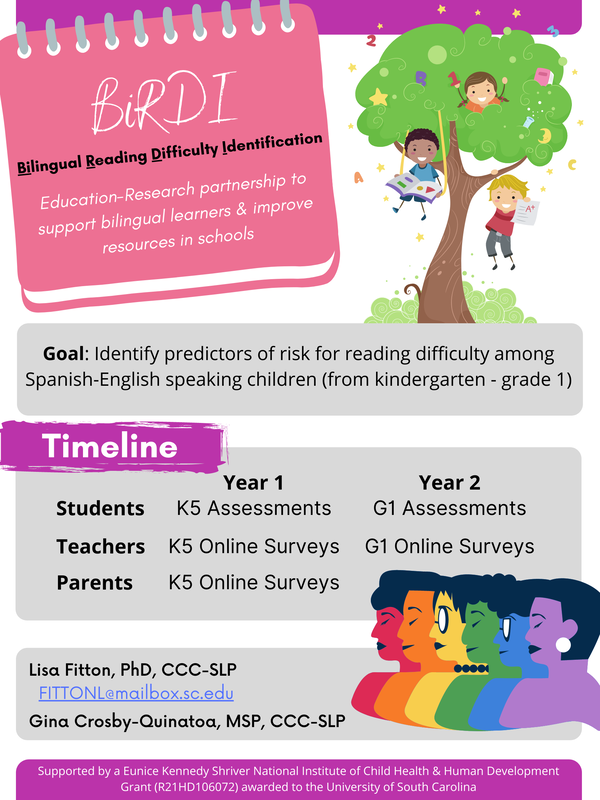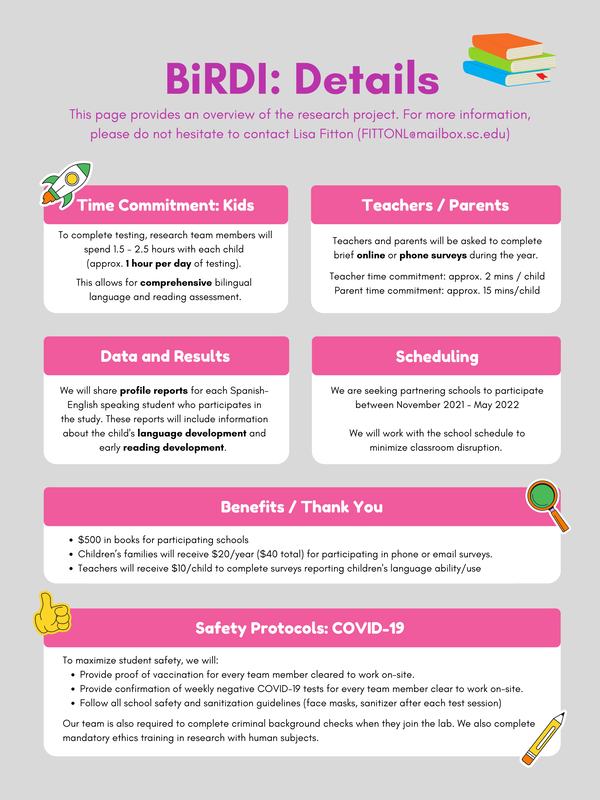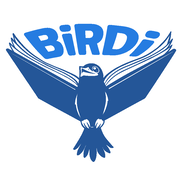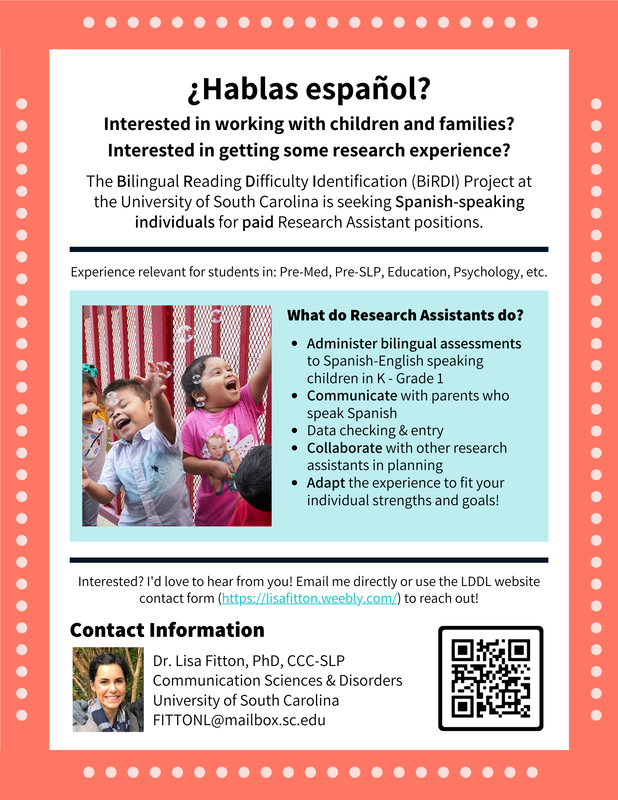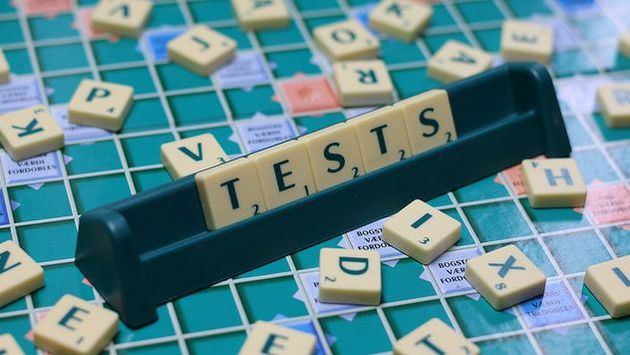This project is conducted by members of the BiRDI Team at USC and at Texas A&M
|
Funding: Eunice Kennedy Shriver National Institute of Child Health & Human Development Grant (R21HD106072), National Institutes of Health
Full Project Title: Language difference or difficulty learning? Assessing early language skills to identify risk for reading difficulty among young Spanish-English dual language learners Principal Investigators: Lisa Fitton, PhD, CCC-SLP & J. Marc Goodrich, PhD Co-Investigator: Gina Crosby-Quinatoa, MSP, CCC-SLP, LSLS Cert. AVT Sites: University of South Carolina; Texas A&M University |
Why focus on the identification of reading difficulty among bilingual learners?
Bilingual children being educated in the United States have incredible skills and abilities that often go unrecognized in English-only educational settings. There is need for attention to these disparities, particularly in thinking about how to more effectively support bilingual children as they navigate multiple cultural and linguistic systems at home and at school.
At present, bilingual children are disproportionately misidentified as having language and communication disorders, compared to their monolingual peers. They experience both over-identification (i.e., being labeled as having a disorder when they are fine) and under-identification (i.e., children with disorders are assumed to be typically-developing). Both forms of misidentification have negative consequences. Over-identification can place unnecessary stress on families and on children (and on practitioners' time). Under-identification deprives children and families of needed resources to maximize their educational growth and opportunities.
To reduce the risk of misidentification, it is essential to have valid and reliable assessment tools to assist in testing children appropriately. In line with the overall goal of the LDDL lab to disrupt disparities in the educational system due to systemic bias and minoritization, the purpose of this line of work is to examine the item and scale functioning of existing standardized, norm-referenced assessments designed to evaluate the language and literacy development of Spanish-English speaking children
At present, bilingual children are disproportionately misidentified as having language and communication disorders, compared to their monolingual peers. They experience both over-identification (i.e., being labeled as having a disorder when they are fine) and under-identification (i.e., children with disorders are assumed to be typically-developing). Both forms of misidentification have negative consequences. Over-identification can place unnecessary stress on families and on children (and on practitioners' time). Under-identification deprives children and families of needed resources to maximize their educational growth and opportunities.
To reduce the risk of misidentification, it is essential to have valid and reliable assessment tools to assist in testing children appropriately. In line with the overall goal of the LDDL lab to disrupt disparities in the educational system due to systemic bias and minoritization, the purpose of this line of work is to examine the item and scale functioning of existing standardized, norm-referenced assessments designed to evaluate the language and literacy development of Spanish-English speaking children
Want to learn more?
Teachers, SLPs, and Other Educational Professionals: Interested in Partnering with Us?
- Please contact me directly via email ([email protected]) or using our contact form.
- Download the informational flyer about the project here to share with your school.
- Feel free to explore our website to learn more about Dr. Lisa Fitton, our amazing team, and our work.
Contribute to the Project:
- Individuals (especially undergraduate students) interested in working on this project are encouraged to contact me.
- Detailed information about paid positions is available here.
- Learn more about our partnership with schools in Columbia, South Carolina here.
Additional Opportunities: Students
I just about always have research opportunities for students who speak Spanish, and/or who are interested in issues related to equity and inclusion for individuals from linguistically marginalized backgrounds. Bonus points for students who have prior research experience, particularly with testing or data entry. If you have any of these skills, please do not hesitate to contact me.
